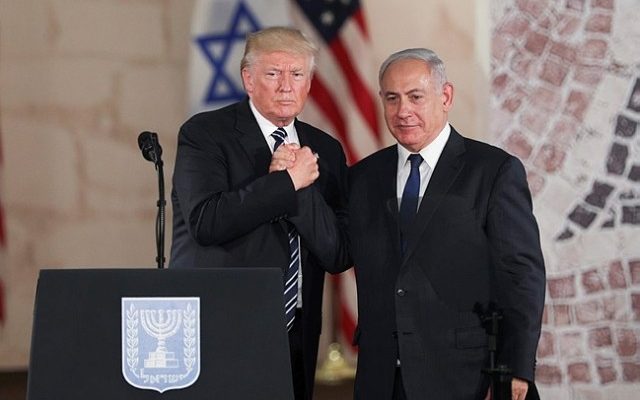By recognizing Jerusalem as Israel’s capital, Trump has given a Chanukah gift to Israel as well as a Christmas present to himself by restoring the foreign policy power balance in Washington.
By: Daniel Krygier, Political Analyst, World Israel News
While US Presidents come and go, US Middle Eastern policies have been remarkably consistent for decades. The US State Department, not known to be a friend of Israel, has been calling the shots concerning much of those policies. By recognizing Jerusalem as Israel’s capital, President Donald Trump has given not only a Chanukah gift to Israel, but also a Christmas present to himself by restoring the foreign policy power balance in Washington.
According to US law, the Trump Administration was supposed to close the Palestine Liberation Organization’s Washington office because the PLO continues to incite against Israel and support terrorism. However, the US State Department undermined the president by deciding to reward PLO’s aggression against Israel and keep its office in Washington open.
Under President Barack Obama, the White House and the State Department both followed the same misguided policy that identifies the Arab-Israeli conflict as the root to all Middle Eastern violence and conflicts. The pro-Arab State Department traditionally sees Israel as the main culprit in the Middle East and its policies are based on this Orwellian viewpoint. The State Department has for years refused to recognize Jerusalem as Israel’s capital and systematically undermined any efforts to move the US embassy from Tel Aviv to Jerusalem.
Trump sends several messages to different audiences
Trump sees the Middle East and the world through a very different lens than his predecessor. By recognizing Jerusalem as Israel’s capital, Trump sends several messages to different audiences. First, the recognition of Israel’s capital infuses some badly needed reality to outdated US Middle Eastern policies. Second, Trump sends a strong message that the White House supports its ally Israel. Third, he sends a message to the PLO and Israel’s other adversaries that there are no more free lunches, as was the case under Obama.
The Trump Administration is expected to present a comprehensive peace plan addressing the Arab-Israeli conflict. While the details are yet to be unveiled, Israel will likely be asked to make concessions to achieve what Trump has called the ultimate peace deal. However, unlike Obama, Trump will also want concessions from the PLO and demand that Israel’s existence as a Jewish state is respected and recognized by Israel’s neighbors. Whether it likes it or not, the Abbas regime in Ramallah will be forced to adapt to a new reality based on a give-and-take approach. By recognizing Jerusalem as the capital of the Jewish state, Trump sends a signal to Ramallah that Israel is a permanent reality and is supported by a US that embraces reality.
At home in Washington, Trump has given himself an early Christmas gift by showing the State Department who’s the boss in town with regards to US foreign policies. While this is good news for allies like Israel, it also restores America’s position in the Middle East and well beyond.





